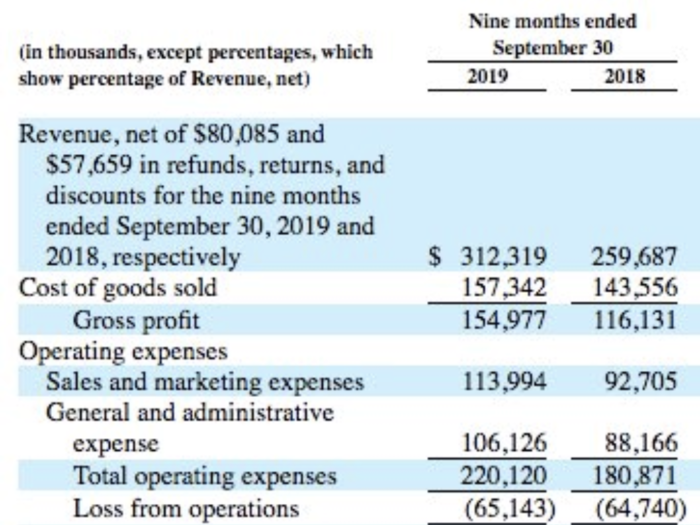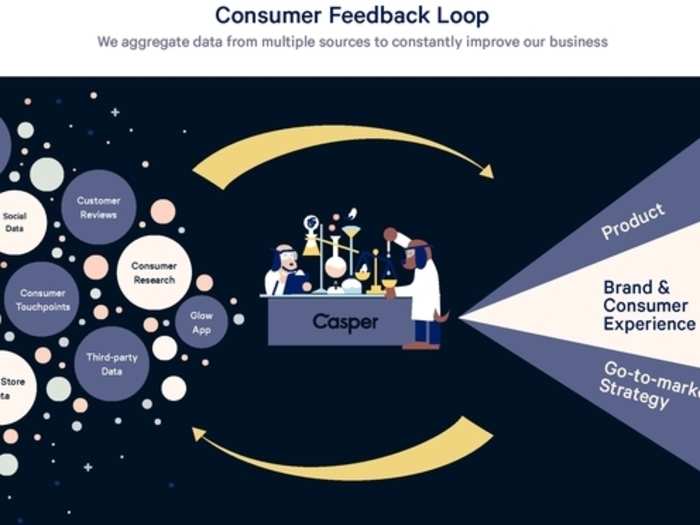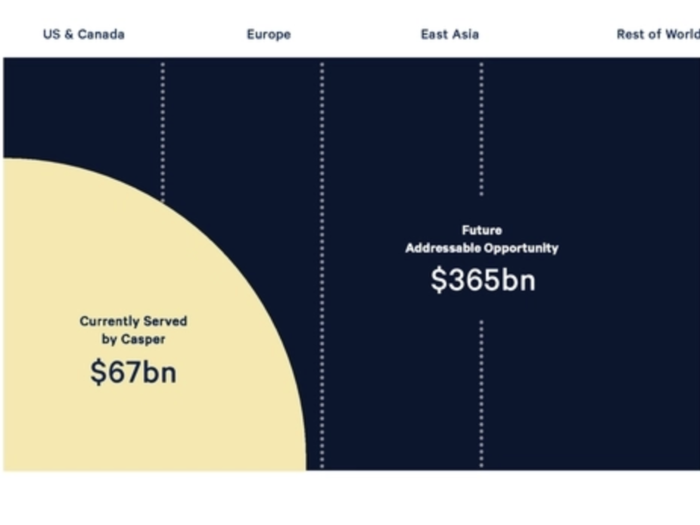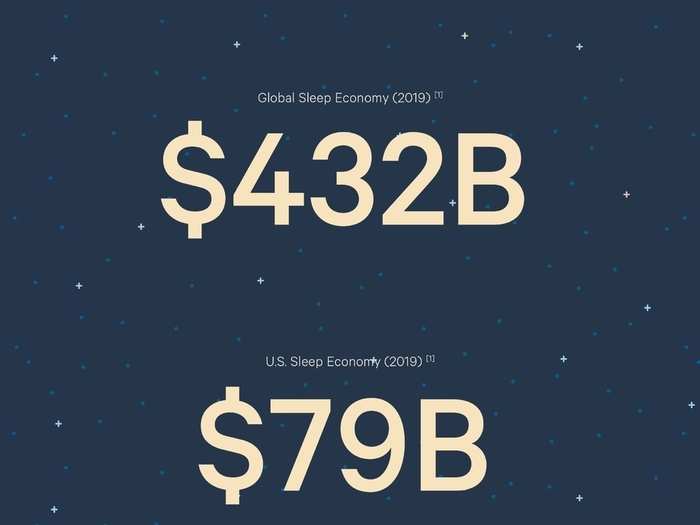Notably missing - a chart of Casper's profit margins. Its financial statements show heavy losses, which the company cites as a significant risk.
Casper racked up operating losses of $65 million by September 2019, roughly the same as it lost in the same period the year before.
More than 70% of its gross profit in the first nine months of 2019 were spent on sales and marketing costs.
The rest of its slides focus on the sleep market, adding a quirky dash to the prospectus. This timeline shows investors when to use Casper products — between bedtime and waking up.
Casper doesn't envision itself as a mattress company, positioned in a mattress market.
It is a company that aims to take advantage of an entire "sleep economy."
One of its wackier slides drums that point home, through a slide showing a timeline between bedtime and waking up.
Casper also included a slide to explain how it plans to improve its products. It features its data-analysts as scientists that appear to be conducting a chemistry experiment amid a swirling chaos of data.
Casper gathers data from customer website visits, customer reviews, social media, and other sources.
This graphic shows its data scientists in the middle of a chemistry lab, funneling data gathered from these sources into improving its sales and marketing experiences (which in turn, should encourage customers to give more feedback as per the graphic).
This slide shows how Casper estimated the value of the global sleep market at $432 billion — by including sleep technology, medical devices, and sleep for pets.
Casper envisions its offerings growing far beyond the humble mattress, to take advantage of a global market that sells sleep for pets, sleep for travelers, sleep technology and medical devices.
"The total market size of the categories and geographies we currently address is $67 billion in 2019, leaving significant opportunity for growth," the company says. This graphic shows how it aims to grow its offerings in the future.
And this slide shows that Casper sees the global sleep market growing at twice the rate of the global economy.
Not only does Casper value the global sleep market at a whopping $432 billion, but it also estimates it growing at an annual rate of 6.3% over the next five years, a rate almost twice as fast as the global economy, which grew 3.5% in 2019, the IMF said.
A chart later in the IPO shows that the domestic sleep market is also expected to grow at a rate well above the US economy's 2.1%, at 3.6%.
By 2024, Casper says the sleep market will be worth $585 billion.





